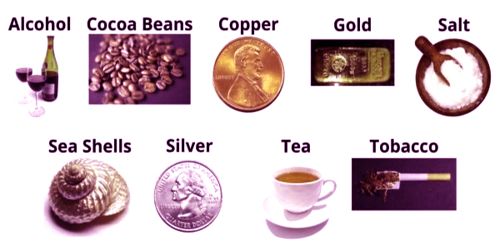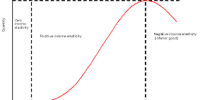A commodity is any homogenous goods traded in bulk on an exchange. In economics, a commodity is an economic good that has full or substantial fungibility: that is, the market treats instances of the good as equivalent or nearly so with no regard to who produced them. They are most often used as inputs in the production of other goods or services. It is defined as a tangible good that can be bought and sold or exchanged for products of similar value. The quality of a given commodity may differ slightly, but it is essentially uniform across producers. Grain, precious metals, electricity, oil, beef, orange juice, and natural gas are traditional examples of commodities.
The price of a commodity good is typically determined as a function of its market as a whole: well-established physical commodities have actively traded spot and derivative markets. Commodity prices may also respond to particular risk factors such as natural disasters in ways that do not necessarily correspond with inflation more generally. The wide availability of commodities typically leads to smaller profit margins and diminishes the importance of factors (such as brand name) other than price. Like other classes of assets such as stocks, commodities have value and can be traded on open markets. Prices for commodities don’t just affect buyers and sellers; they also affect consumers. For example, an increase in the price of crude oil can cause prices for gasoline to rise, in turn making the cost of transporting goods more expensive. For example, the wheat farmer that plants a crop can hedge against the risk of losing money if the price of wheat falls before the crop is harvested.

Fig; Common Commodities
By contrast, for electronics merchandise, the quality and features of a given product may be completely different depending on the producer. Most commodities are raw materials, basic resources, agricultural, or mining products, such as iron ore, sugar, or grains like rice and wheat. Natural resources such as oil as well as basic foods like corn are two common types of commodities. Commodities can also be mass-produced unspecialized products such as chemicals and computer memory. The advantage of this kind of trading is that it allows growers and producers to receive their payments in advance, giving them liquid capital to invest in their business, take profits, reduce debt, or expand production.
















